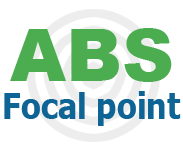
category_news
Articles retracted due to non-compliance with ABS rules
As a user of genetic resources, it is important to comply with the access and benefit-sharing legislation of the country providing the genetic resources. Recently, two scientific articles have been retracted due to non-compliance with national ABS legislation and permits.
An article on stag beetles from Borneo Island (Malaysia and Indonesia) has been retracted because the authors did not know about the Sabah Biodiversity Enactment 2000 during submission and hence did not follow this legislation. An article on DNA barcoding of new species of riffle beetles has been retracted because the collection permit did not allow publication of the data which formed the basis of the article. The statements of retraction are available here and here.
In both cases, the authors of the articles were made aware of these problems by the Sabah Biodiversity Centre, an institution tasked by the government of the state of Sabah, Malaysia, with monitoring ABS compliance.
How to comply with ABS legislation and prevent retraction
In the examples above, retraction of the articles could have been prevented by checking the national access legislation of the provider country and adhering to the conditions of the collection permit.
For most countries that are Party to the Nagoya Protocol, national access legislation can be found on the website of the ABS Clearing-House (ABS-CH). However, even if no information on access legislation is available on the ABS-CH, a country may still have applicable legislation. Not all information on the ABS-CH is completely up-to-date. When looking to access genetic resources, it is advised to contact the provider country’s National Focal Point (NFP) and ask for information. Contact details of the NFP of most countries are available on the ABS-CH.
Provider countries may require Prior Informed Consent (PIC), which means approval for access to and utilisation of genetic resources by the authorities of the provider country. PIC can be obtained by contacting the Competent National Authority (CNA) of a provider country and may take the form of a collection permit issued by the authorities. When a country issues PIC with certain conditions it is important to adhere to these conditions, or you may run into problems with the authorities of this country.
Further information
The ABS Focal Point provides resources to help you comply with ABS rules. An overview of what to do as a user of genetic resources can be found on the page: ‘What to do?’
The ‘Frequently Asked Questions’ (FAQ) section answers questions about ABS rules, when these rules apply, compliance and administration, the EU ABS Regulation and more.
A tool to help you comply with the EU ABS Regulation is also available: ‘Help tool’. Please note that this tool provides information based on the EU ABS Regulation, which applies to EU member states. It does not cover national access legislation of provider countries.
For additional questions regarding ABS, the Nagoya Protocol and the EU ABS Regulation, feel free to contact the ABS Focal Point.
